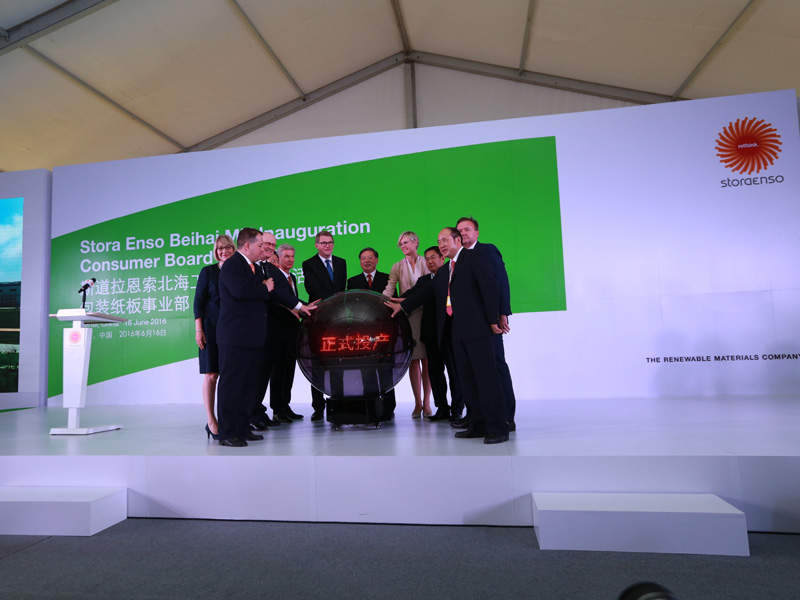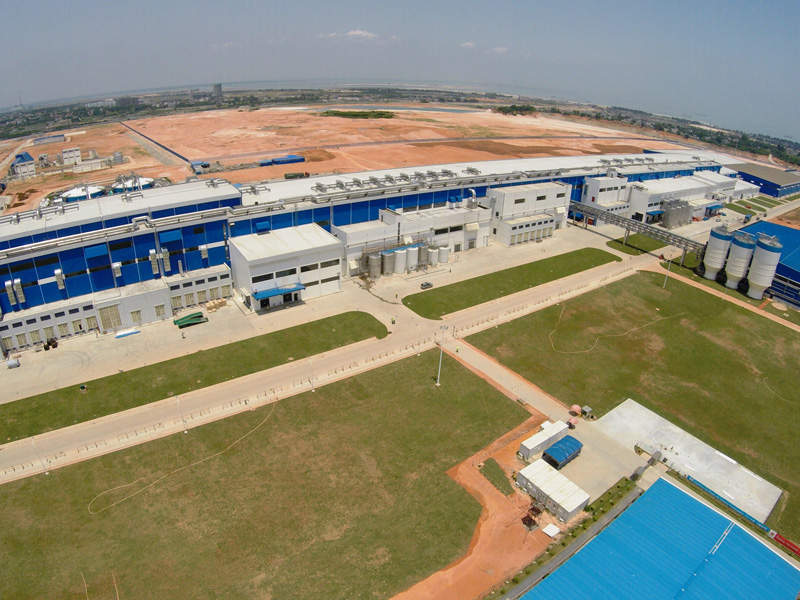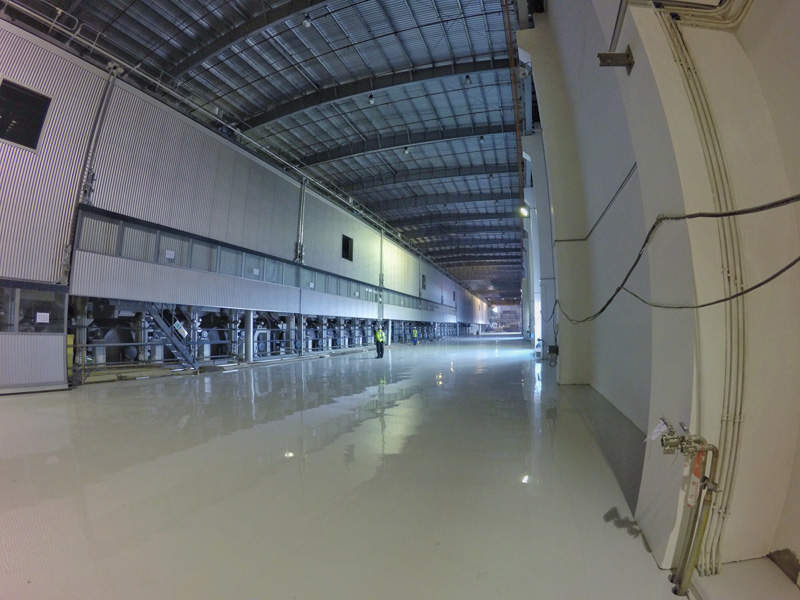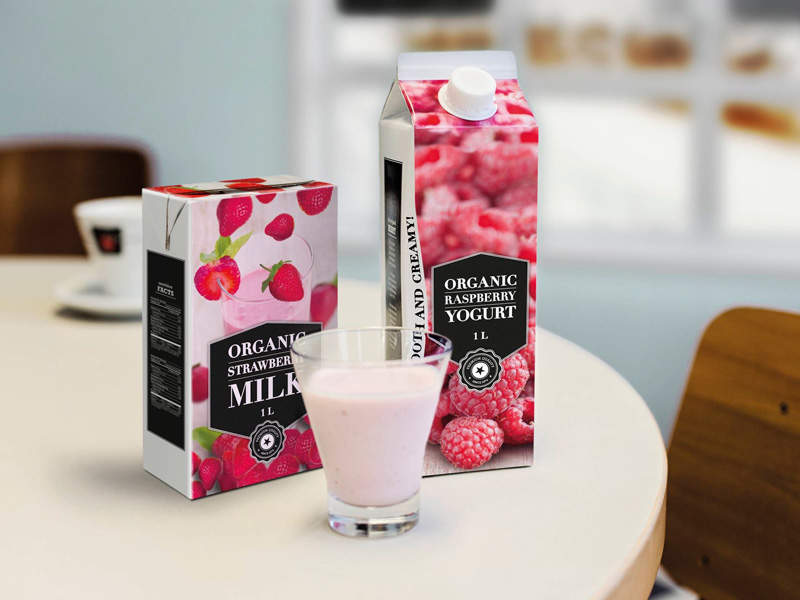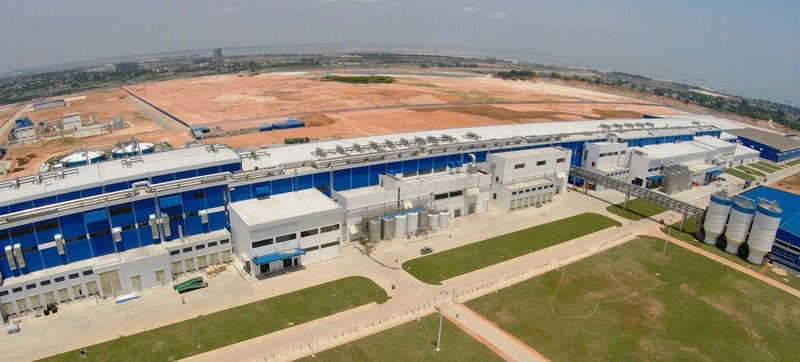
Stora Enso, a provider of renewable solutions in packaging, biomaterials, wood and paper, inaugurated the first phase of its integrated board and pulp mill facility located in Beihai City, Guangxi, China, in June 2016.
Developed with a total investment of €800m ($886m), the project is claimed to be the biggest Nordic direct investment in China and a significant investment made by the company in its history.
First phase of the integrated facility involved the construction of a consumer board mill, which produces liquid packaging board (LPB) cartons and folding box board (FBB) cartons.
The board mill will be managed by International Finance Corporation (IFC), which owns a 5% stake in the project, Stora Enso is the majority stakeholder with an 83% share, with the remainder owned by Guangxi Forestry Group and Beihai Forestry Investment & Development Company.
The second phase of the project will see the construction of a chemical pulp mill, which is scheduled for completion by the end of 2016.
When fully operational, the integrated facility will create significant positive socioeconomic impact and generate approximately 1,000 direct jobs and 30,000 indirect jobs in forestry, logistics, machinery, chemical, service and other related industries.
History of the integrated mill project
Plans to establish a complete production chain in Guangxi, right from the raw material to the end product, first started in 2006.
Stora Enso reached full capacity at its existing consumer board mills in Finland and Sweden. The only option left to expand and meet customer demand was to increase capacity in the market where there is a high demand for the company’s products.
Being one of the high potential markets and witnessing rapidly increasing demand for high-quality and safe fibre-based consumer boards, China was selected for the new investment.
The company had started sustainable eucalyptus plantations in Guangxi since 2002. In 2012, the plan to construct a world-class integrated facility was finalised.
Stora Enso received approval from the Chinese National Development and Reform Commission’s (NDRC) and the Ministry of Commerce of the Government of the People’s Republic of China (MOFCOM) in 2013.
Due to the delay in approvals and to leverage the growing demand for high-quality consumer board, the company revised its investment schedule, divided it into two phases, and initiated the construction of first phase in 2014. A bleached chemi-thermomechanical (BCTMP) pulp mill is being constructed in the second phase.
Details of Stora Enso’s consumer board mill
Stora Enso’s new consumer board mill is located in the Tieshangang industrial zone in Guangxi. The design of the state-of-the-art mill is based on long-term sustainable principles and best available technology.
It is equipped with a board machine and a full site infrastructure with a power plant, water and effluent treatment plants, office building and a wood yard.
Production at the integrated mill
The newly opened consumer board mill will have an initial capacity of producing 450,000t/y of liquid packaging cardboard and other high-grade paperboard products. The mill started production in May 2016 and is expected to reach full capacity over the next two years. The chemical mill will have a production capacity of 220,000t/y.
Raw material for the plant will be supplied from the wood harvested in the company-leased land in which it has eucalyptus plantations that are certified by the Forest Stewardship Council (FSC) and the Chinese-equivalent CFCC for meeting the recognised standards.
The wood will be converted into bleached chemithermo mechanical pulp (BCTMP) and bleached hardwood kraft pulp (BHKP) for use in the board mill to produce packaging boards and box boards.
Products manufactured at Stora Enso’s new Chinese mill
One of the key products produced at the mill is the liquid packaging board, which is the base material for high-quality food packaging. It is widely used for high-quality beverage cartons and plays a key role as it needs to withstand the long-distance distribution of milk and juice products to consumers.
Contractors involved
Global engineering and construction company Fluor Corporation provided procurement and construction management services for the project. The company was involved in the construction and procurement of an innovative board machine and associated infrastructure, including power, water and effluent treatment facilities.
It will also be responsible for the completion of mechanical pulp mill during the second phase of the project.
Financing
The total capital expenditure for the project is €800m ($886m), €760m ($841.7m) of which was spent for the first phase development that included €590m ($653.4m) for industry and €170m ($188.27m) for plantation operations.

